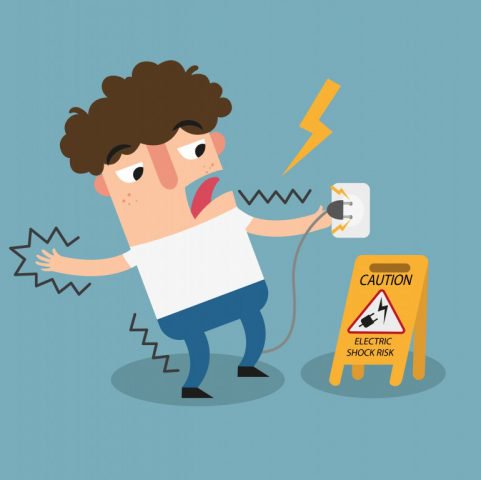It is a landlord’s duty to ensure that the electrics in their rental property are safe. Failure to comply with the law in this area could have terrible consequences hence we produced a simple guide to electrical safety for you.
Statistics
Unsafe electrical installations cause about 30 deaths and almost 4,000 serious injuries every year. It has been found that most of these accidents could be avoided.
Rented properties are more likely to suffer electrical faults than owner-occupier homes, as they are more susceptible to wear and tear.
Inspections
Landlords must regularly inspect and record the condition of electrics in their rental property. If a tenant conducts their own electrical work without telling you, they could have made the electrics unsafe and non-compliant with electrical regulations, including Part P of the Building Regulations.
Part P
Part P of the Building Regulations was introduced for safety in the home. It was launched on 1st January 2005 in England and Wales in an attempt to reduce the amount of accidents caused by faulty electrical installations.
Under Part P, any electrical installation work conducted must be of the highest standard, meaning that tenants will be kept as safe as possible. The regulation means that the electrical contracting industry has been aligned with gas safety rules.
Landlords must comply with Part P. Failure to do so is a criminal offence and local authorities will be able to enforce the removal or modification of work that does not meet the requirements.
Part P covers all fixed installations in houses and flats. It is also expands to common access areas, shared amenities in flats and electrical installations on land associated with buildings.
A registered electrical contractor will be able to inform you if the work you need conducting falls within Part P.
Electrical appliances
Landlords should regularly review electrical appliances in their rental property. The Electrical Equipment (Safety) regulations 1994 specify that landlords ensure all appliances are safe to use when they are first supplied. If you provide items such as kettles, microwaves, dishwashers, you should check them frequently.
You should look out for:
- Punctures or abrasions to cable coverings.
- Cracked casing or bent pins.
- Loose parts and screws.
- Burn marks.
- Looseness where the outer covering of a cable connects to the plug.
You may then have to carry out a formal inspection, in which you must remove the plug cover to check if:
- The cord grip is securing the outer part of the cable firmly.
- The wires are attached to the correct terminals.
- There is bare wire visible anywhere other than at the terminals.
- The terminal screws are tight.
- There is sign of internal damage.
It may be a good idea not to use extension leads. If you do provide them, they should be tested as portable appliances.
A residual current device (RCD) should protect all socket outlets, where portable equipment may be used outdoors. A RCD will protect against electric shocks.
Tradespeople
If you employ an electrical contractor to conduct electrical installation work on your rental property, they must be registered with a Government-approved Part P scheme. If they are authorised, they will be able to self-certify their work. If not, you must contact Building Control before work begins.


